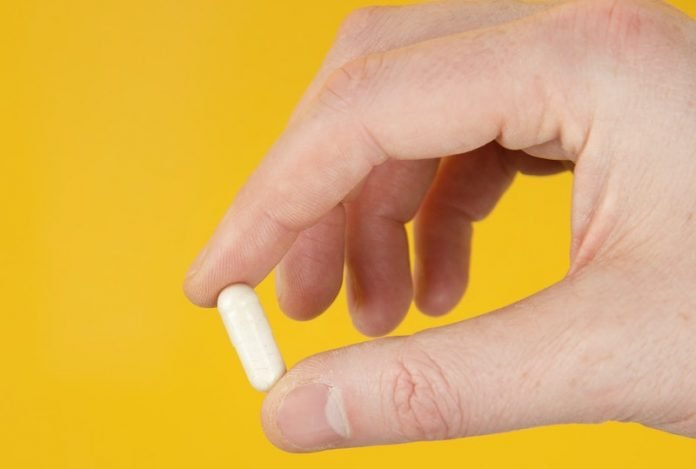
The immune system deteriorates with age, making COVID-19 particularly deadly in older people—but to date, no clinically available medication addresses this key risk factor.
A new study from BioAge Labs in California found that an oral drug that reverses multiple aspects of immune aging effectively prevents death in a mouse model of COVID-19.
This suggests that the medication could be used to protect the elderly patients who are at greatest risk in the pandemic.
In the study, the team found daily doses of BGE-175 (asapiprant) protected aged mice from a lethal dose of SARS-CoV-2, the virus that causes COVID-19.
Ninety percent of mice that received the drug survived, whereas all untreated control mice died.
BGE-175 treatment was initiated two days after infection, when the mice were already ill, a time-frame relevant to real-life clinical situations in which patients would receive medication only after becoming symptomatic.
The mouse model used in the study closely mirrored the pathological progression of human COVID-19.
The mouse-adapted strain of SARS-CoV-2 generated by the researchers caused a disease that shared many of the hallmarks of human COVID-19: accumulation of fluid in the air sacs of the lungs, extensive infiltration of lung tissue by immune cells, and high levels of pro-inflammatory factors called cytokines.
BGE-175 is currently in a Phase 2 clinical trial to test whether it can prevent disease progression and mortality in older patients hospitalized with COVID-19.
The team says the COVID-19 pandemic has devastated elderly populations around the world
The promising data in this paper show that BGE-175 almost completely protects aged mice from lethality in a compelling model of human COVID-19.
By reversing age-related declines in critical immune mechanisms, BGE-175 could allow older patients to more effectively fight off this disease.
Recent studies have found that anti-COVID drugs could work well to fight variants like Omicron. Other studies showed that oral COVID pills could be a game changer.
In December 2021, the U.S. Food and Drug Administration issued an emergency use authorization (EUA) for Pfizer’s Paxlovid (nirmatrelvir tablets and ritonavir tablets, co-packaged for oral use).
It is for the treatment of mild-to-moderate coronavirus disease (COVID-19) in adults and pediatric patients (12 years of age and older weighing at least 40 kilograms or about 88 pounds) with positive results of direct SARS-CoV-2 testing.
It is also for people who are at high risk for progression to severe COVID-19, including hospitalization or death.
Paxlovid is a type of drug called a protease inhibitor that blocks the activity of an enzyme that the coronavirus needs to replicate.
Paxlovid is available by prescription only and should be initiated as soon as possible after the diagnosis of COVID-19 and within five days of symptom onset.
Patients would take two Paxlovid pills twice daily for five days along with another oral drug whose generic name is ritonavir.
Ritonavir helps Paxlovid remain active in the body for longer periods of time so that it can slow down the virus’ ability to replicate.
According to Pfizer, if Paxlovid and ritonavir are taken within three days of the first sign of COVID-19 symptoms, studies show the risk of hospitalization or death drops by 89% in high-risk patients.
Besides Paxlovidl, FDA also approved Merck’s molnupiravir for treating COVID-19.
Molnupiravir is a type of drug called a nucleoside analog. It prevents the coronavirus from replicating by introducing “copying errors” into the virus’ RNA during the replication process.
Patients with COVID-19 would take eight molnupiravir pills a day for five days.
According to Merck, if molnupiravir is taken within five days of the start of symptoms, studies show the risk of hospitalization is cut in half.
Among patients who took Pfizer’s Paxlovid, nearly one in five had mild side effects, although the specifics have not yet been released.
Ritonavir, the drug that would be taken with Paxlovid, may cause side effects such as diarrhea, nausea, vomiting, abdominal pain, fatigue and dizziness.
For the Merck pill, no serious side effects have been published yet.
If you care about COVID, please read studies about existing drugs that can kill COVID-19 virus, and this depression drug can save COVID-19 patients.
For more information about COVID, please see recent studies about anti-aging drugs that may protect older people from severe COVID-19, and results showing coffee and veggies may help prevent COVID-19.
The current study is published in Nature and was conducted by Kristen Fortney et al.
Copyright © 2022 Knowridge Science Report. All rights reserved.



